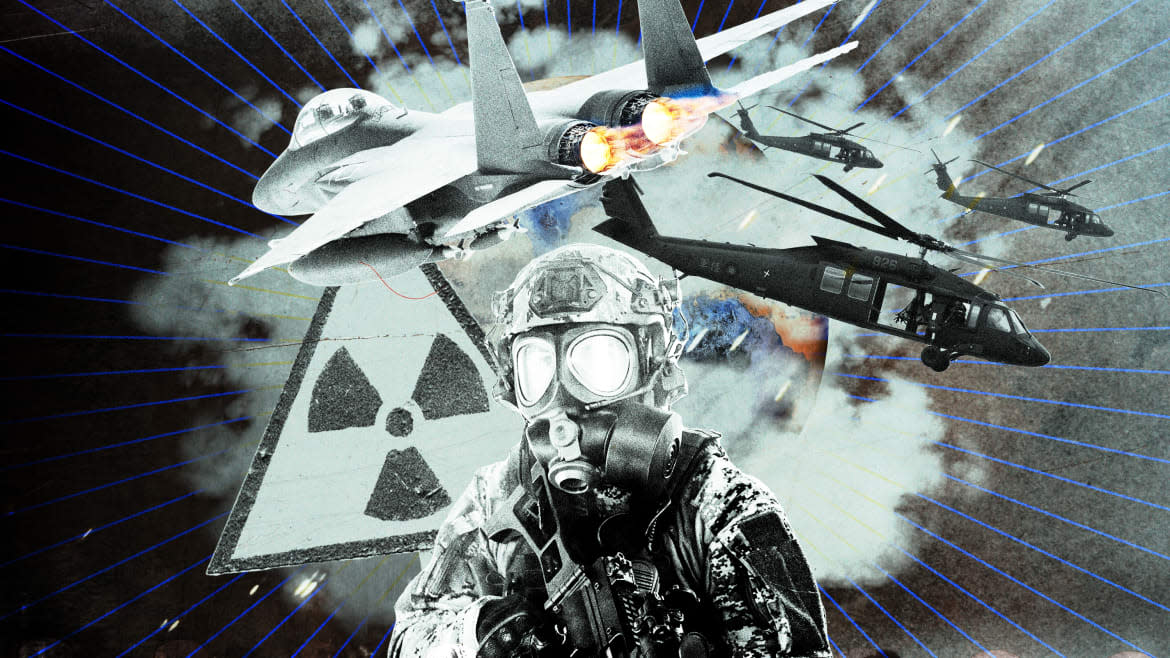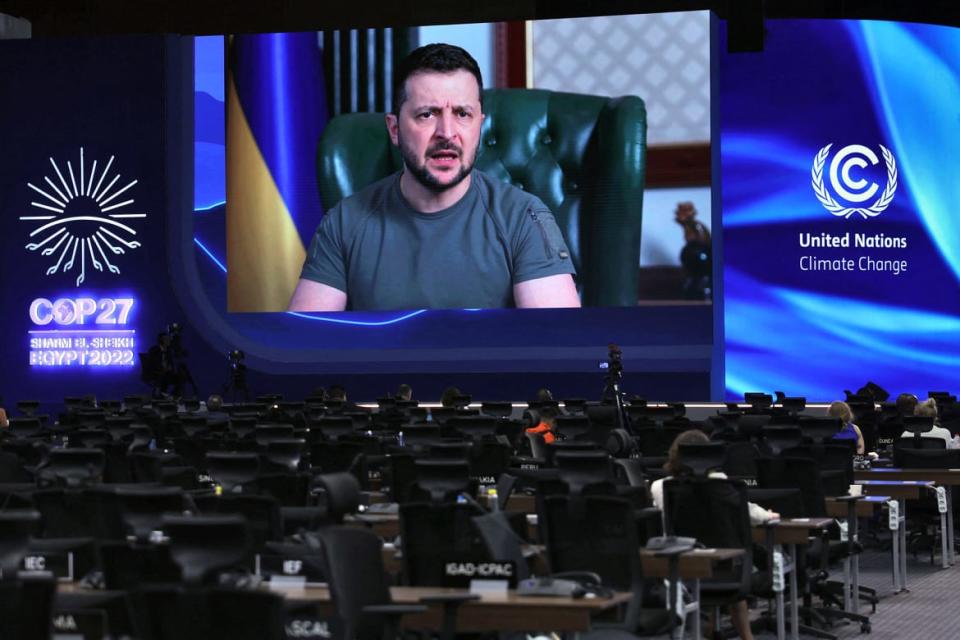War—What Is It Good For? Definitely Not the Climate.

- Oops!Something went wrong.Please try again later.
This year’s United Nations Climate Change Conference has been roundly criticized for its host, sponsors, and even its plumbing—and rightly so. But if there’s one thing COP27 has adequately highlighted, it’s the solid-as-concrete link between war and climate change.
The climate-conflict connection has been discussed mainly through the prism of the Russian invasion of Ukraine and its ensuing fallout. On Wednesday, Ukrainian President Volodymyr Zelensky addressed world leaders remotely and stressed that “there can be no effective climate policy” without world peace.
“Who will care, for example, about the amount of the greenhouse gases in the atmosphere if part of Europe or the Middle East and possibly northern Africa, God forbid, are covered by a radiation cloud after an accident in Zaporizhzhya?” he said, referring to the massive nuclear power plant that has come under fire during the war.

Ukrainian President Volodymyr Zelensky appears on a screen as he delivers a speech at the COP27 climate conference at the Sharm el-Sheikh International Convention Centre on Nov. 8.
But while Russia’s invasion is the latest in global conflicts whose shadows loom over COP, it’s certainly not the first. And by now, researchers have a clear picture of how the war in Ukraine, and conflict writ large, invariably sets us back on meeting climate goals.
One way war’s devastation can be measured on the ground is in terms of the ecological destruction wrought as collateral damage. Since battlefields are often considered to be terrain, rather than natural ecosystems deserving protection, “ecosystem health and integrity are often neglected casualties of warfare,” wrote the authors of a 2015 study.
When these ecosystems are already rare, which is the case for steppe grasslands found in Ukraine, hostilities can endanger species and destroy rare habitats. With no way to regulate conservation, logging and other unsustainable activities can explode, further threatening limited resources.
Green Hypocrisy Hangs Over This Year’s U.N. Climate Meeting
In terms of resources, “Conflicts are very destructive,” Ore Koren, a political science researcher at Indiana University Bloomington, told The Daily Beast. In fact, “they're much more destructive than climate change in most areas,” driving human migration within and between countries.
Conflict displacement—when people flee their homes due to violence—outpaces climate displacement: According to a 2021 report by the United Nations High Commissioner for Refugees, 84 million people around the world were displaced as of mid-2021. That number is only rising.
Then there’s the environmental price of military equipment. Military aircraft today still largely run on fossil fuels, meaning that nations with large militaries emit massive amounts of carbon into the atmosphere. The U.S. Department of Defense uses tens of millions of barrels of fuel each year to power ships, vehicles, aircraft, and bases—making it the single largest institutional producer of greenhouse gases worldwide.
There’s some suggestion that climate change and conflict feed into each other in a nasty feedback loop, though what drives warfare is much more complicated than the well-known manmade factors that lead to climate change, Koren said. Food scarcity, which can be impacted by climate variability, played a sizable role in the impetus for the Arab Spring—on the other hand, that same food scarcity could disincentivize conflict if one power could not feed their army, he added.
Given that the link between conflict and backtracking on climate goals is clear, though, more adaptation plans need to take “conflict proofing” into account, Halvard Buhaug, a political science researcher at Peace Research Institute Oslo, recently wrote. But without a stop to conflict, sustainable development is an unlikely aspiration.
“Although it may be possible to maintain peace without successful climate adaptation, successful climate adaptation is impossible in the absence of peace,” Buhaug wrote.
Get the Daily Beast's biggest scoops and scandals delivered right to your inbox. Sign up now.
Stay informed and gain unlimited access to the Daily Beast's unmatched reporting. Subscribe now.

